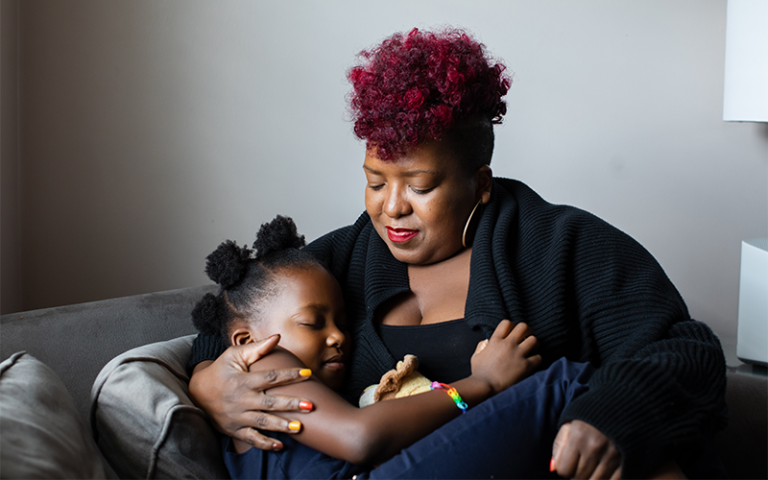How hostile immigration policies shape mothering, belonging and citizenship
28 April 2023
Current immigration and citizenship policies make mothering a strategic activity which places significant emotional burden on migrant mothers who have ‘no recourse to public funds’ and increases social inequalities, finds new IOE research.

While immigration policies in the UK have long been described as hostile and discriminatory, in 2012 the UK government introduced a strategy which made the ‘Hostile Environment’ explicit, in order to reduce net migration. The Hostile Environment policies, which primarily target people with no or only temporary residency rights, include a series of measures which limit access to employment, housing, health care, bank accounts and welfare support.
More than 1.3 million people with insecure migration status are estimated to have ‘No Recourse to Public Funds’ (NRPF), meaning they cannot access welfare support and many public services. The measures particularly affect people from the Global South, especially mothers and children.
To better understand the specific impact of Hostile Environment policies on migrant mothers, Dr Rachel Benchekroun’s research investigated how women living in a London neighbourhood navigate their role as mothers within the constraints imposed by their status and NRPF.
The new paper published in Ethnic and Racial Studies shows that the legal and financial precarity produced by NRPF could affect social relationships, making it difficult to develop trust and to ask for support. Mothers were very cautious about disclosing their immigration status with others; doing so could help them to access support, but it could also put them, and by extension their children, in vulnerable positions. Mothers were forced to negotiate between different needs – for intimacy versus privacy, autonomy versus dependency; and between the need to access resources and their scarcity.
Having no recourse to public funds created stressors that affected mothers’ relationships with their children, partners, wider family, friends and faith groups. This exacerbates structural inequalities, particularly for racially minoritised mothers and their children.
Dr Benchekroun observed that unequal immigration statuses could create or exacerbate unequal power dynamics within intimate and social relationships. By impeding their access to support, mothers could feel less able to leave positions in which they were exploited or abused, with implications for both their own and their children’s wellbeing.
Beside interpersonal trust, the research found that the Hostile Environment undermines institutional trust. While marginalised, Dr Benchekroun argues that these mothers actively engage in relational belonging in order to provide for their children. Meeting children’s everyday needs to acquire material resources and experiences to ‘fit in’ with their peers could be exhausting, requiring constant creativity, resourcefulness and judicious engagement with support networks. Mothers also encouraged children’s sense of citizenship and belonging by cultivating a strong sense of (cultural or faith-based) identity, while protecting them from ‘knowing too much’ about their insecure immigration status.
Dr Benchekroun said: “mothering in the context of Hostile Environment policies necessitates thoughtful everyday decision-making to build and sustain support networks. This includes working out whom to trust and what kinds of information to share; identifying options for accessing material resources; and creatively finding ways to meet children’s evolving needs. Whilst the relentlessly Hostile Environment erects multiple borders and barriers, mothers continue to resist and enact belonging for themselves and their children through their everyday mothering.”
Links
- Read the full paper in Ethnic and Racial Studies
- Read more on the IOE Blog: How hostile immigration policies affect mothers and their access to support
- Dr Rachel Benchekroun’s academic profile
- Thomas Coram Research Unit
- Social Research Institute
- UCL Migration Research Unit
Image
Credit: Nadiya Nacorda / Adobe Stock.
 Close
Close

